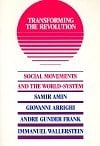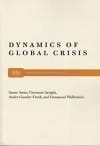I met André Gunder Frank and his wife Marta Fuentes in 1967. Our long conversation convinced us that we were intellectually on the same wavelength. “Modernization Theory,” then dominant, ascribed the “underdevelopment” of the Third World to the retarded and incomplete formation of its capitalist institutions. Marxist orthodoxy, as represented by the Communist Parties, presented its own version of this view and characterized Latin America as “semi-feudal.” Frank put forward a new and entirely different thesis: that from its very origins Latin America had been constructed within the framework of capitalist development as the periphery of the newly arising centers of Europe’s Atlantic seabord. For my part, I had undertaken to analyze the integration of Asia and Africa into the capitalist system in light of the requirements of “accumulation on a global scale,” a process that by its inner logic had to produce a polarization of wealth and power | more…
With a population of over a billion, approaching that of China, and an economic growth rate above the world average, India is now frequently identified as one of the prospective great powers of the twenty-first century. The purpose of this article is to question this prognosis, as the conditions necessary for India to become a great modern power seem to me far from assured. | more…
The analysis proposed here regarding the role of Europe and the Middle East in the global imperialist strategy of the United States is set in a general historical vision of capitalist expansion that I have developed elsewhere. In this view capitalism has always been, since its inception, by nature, a polarizing system, that is, imperialist. This polarization-the concurrent construction of dominant centers and dominated peripheries, and their reproduction deepening in each stage-is inherent in the process of accumulation of capital operating on a global scale | more…

The World We Wish to See presents a sweeping view of twentieth-century political history and a stirring appeal to take political organization seriously. Amin offers provocative analysis of contemporary resistance to neoliberalism,while boldly calling for a new global movement, “an internationalism of peoples,” to challenge the current order and fashion a better world. | more…
A discourse on poverty and the necessity of reducing its magnitude, if not eradicating it, has become fashionable today. It is a discourse of charity, in the nineteenth-century-style, which is does not seek to understand the economic and social mechanisms that generate poverty, although the scientific and technological means to eradicate it are now available | more…
The September 11 attacks call for a very different commentary from that which has dominated the media, whose main concern is to justify the use that the hegemonic establishment of the United States wants to make of the events | more…
p>Imperialism is not a stage, not even the highest stage, of capitalism: from the beginning, it is inherent in capitalism’s expansion. The imperialist conquest of the planet by the Europeans and their North American children was carried out in two phases and is perhaps entering a third | more…
The twentieth century came to a close in an atmosphere astonishingly reminiscent of that which had presided over its birth—the “belle époque” (and it was beautiful, at least for capital). The bourgeois choir of the European powers, the United States, and Japan (which I will call here “the triad” and which, by 1910, constituted a distinct group) were singing hymns to the glory of their definitive triumph. The working classes of the center were no longer the “dangerous classes” they had been during the nineteenth century and the other peoples of the world were called upon to accept the “civilizing mission” of the West | more…

Samir Amin’s ambitious new book argues that the ongoing American project to dominate the world through military force has its roots in European liberalism, but has developed certain features of liberal ideology in a new and uniquely dangerous form. Where European political culture since the French Revolution has given a central place to values of equality, the American state has developed to serve the interests of capital alone, and is now exporting this model throughout the world. American imperialism, Amin argues, will be far more barbaric than earlier forms, pillaging natural resources and destroying the lives of the poor. | more…

Samir Amin, one of the most influential economists today, has produced another groundbreaking work. Spectres of Capitalism cuts through the current intellectual fashions that assume a global capitalist triumph, taking the occasion of the 150th anniversary of Marx and Engels’s classic tract, the Communist Manifesto, to focus upon the aspirations of the destitute millions of the post-Cold War era. | more…

The poor and forgotten nations of the world can blame their downward spiral on an emerging world order that Samir Amin in this brilliant essay calls the “empire of chaos.” Comprised of the United States, Japan, and Germany, and backed by a weakened USSR and the comprador classes of the third world, this is an empire that will stop at nothing in its campaign to protect and expand its capitalist markets. | more…

In this successor volume to the widely read Dynamics of Global Crisis, the authors engage in a provocative discussion of the history and contemporary dilemmas facing the movements that are variously described as antisystemic, social, or popular. The authors believe that these movements, which have for the past 150 years protested and organized against the multiple injustices of the existing system, are the key locus of social transformation. | more…

Preeminent theoreticians of the world economy set out their understanding of the long-term dynamics of global capitalism. | more…





